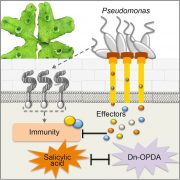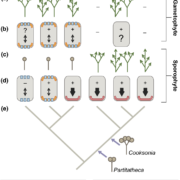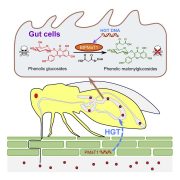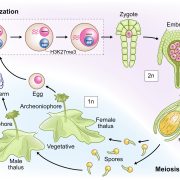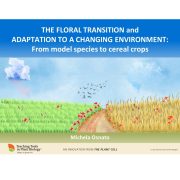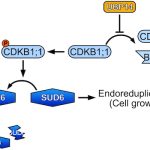Special issue: Sex determination and sex chromosome evolution in land plants (Philosophical Transactions B)
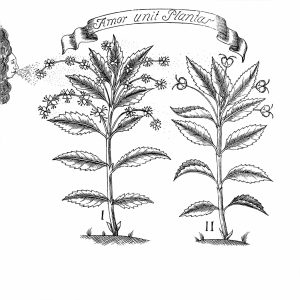 At some point, most biology students learn the term “dioecy” (two houses), which refers to the separation of male and female function into different individuals, a characteristic that is common in animals but less so in flowering plants. About 6% of angiosperms and 65% of gymnosperms are dioecious, including familiar plants such as asparagus, cannabis, poplar, and ginkgo. A new special issue of Philosophical Transactions B addresses all aspects of sex determination and sex chromosome evolution in land plants. The collection of papers in this issue addresses fundamental and open questions such as the evolutionary origins of dioecy in plants, which may have derived from monoecy (having distinct male and female flowers on a single plant, as in corn). Interestingly, although there are simple systems of sex determinacy by sex chromosomes (e.g., X and Y) in both animals and plants, there are also cases where sex appears to be determined by a single-gene sex switch. One intriguing article investigates whether plants, like many animals, show a sex-based difference in life span. Like many questions about sex, the answer is, “It’s complicated.” (Summary by Mary Williams @PlantTeaching) Phil. Trans. Roy. Soc. B https://royalsocietypublishing.org/toc/rstb/2022/377/1850
At some point, most biology students learn the term “dioecy” (two houses), which refers to the separation of male and female function into different individuals, a characteristic that is common in animals but less so in flowering plants. About 6% of angiosperms and 65% of gymnosperms are dioecious, including familiar plants such as asparagus, cannabis, poplar, and ginkgo. A new special issue of Philosophical Transactions B addresses all aspects of sex determination and sex chromosome evolution in land plants. The collection of papers in this issue addresses fundamental and open questions such as the evolutionary origins of dioecy in plants, which may have derived from monoecy (having distinct male and female flowers on a single plant, as in corn). Interestingly, although there are simple systems of sex determinacy by sex chromosomes (e.g., X and Y) in both animals and plants, there are also cases where sex appears to be determined by a single-gene sex switch. One intriguing article investigates whether plants, like many animals, show a sex-based difference in life span. Like many questions about sex, the answer is, “It’s complicated.” (Summary by Mary Williams @PlantTeaching) Phil. Trans. Roy. Soc. B https://royalsocietypublishing.org/toc/rstb/2022/377/1850


